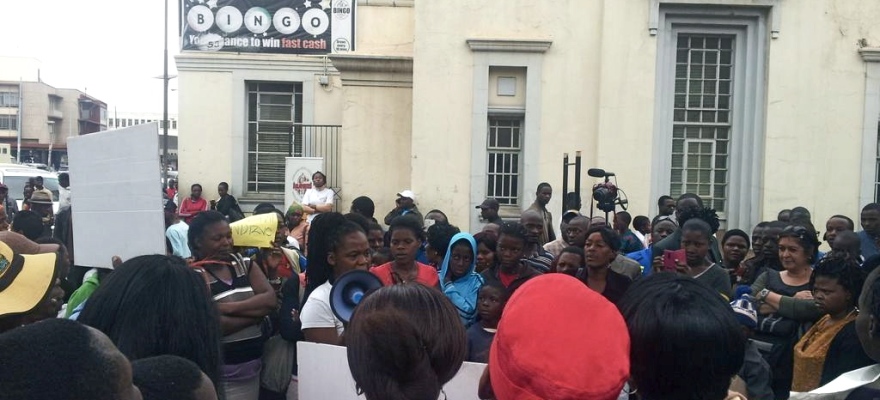I have been identifying very closely with the #fuckyoupayme movement because quite frankly I was tired of being screwed over by people who used my labour and refused to remunerate me for it. It seems to be a disease that the world is increasing being infected with but Zimbabweans have a special brand of this disease reserved for creatives and people within the creative industries. See, Zimbabweans only ever seem to want to pay creatives via “exposure”. I’m particularly livid as we don’t seem to understand that creative labour is labour and when someone labours they should be paid for it. This means that when you ask a rapper like my friend D-Blok Keislim to perform, offering to pay via “expensive t-shirt” just doesn’t cut it. An exception could potentially be made if it’s for a charity that’s not part of the non-profit industrial complex AND I have consented to donate my labour. Beyond that, refusing to properly pay is horrendously offensive and exploitative. It needs to stop. Zimbabwe: pay your creatives. Perhaps I need to break this down a little:
1. Say it with me: “Creative labour is labour”
We seem to think that creatives are at the disposal of people with “real jobs”. Let us get this point clear, just because you may consume our labour whilst you are at leisure does not mean we are at leisure. Creating is a force of both physical and mental energy. Crafting perfect sentences, moving rhythms or taking pictures that speak into people’s soul is labour. People are not entitled to consume it for free or for a pittance. Pay us what our work is worth. Simple.
2. Exposure does not pay bills
We are constantly complaining that our artists are not performing up to the standards we want them to but refuse to create the climate that will enable them to afford to focus solely on artistic endeavours. Whilst exposure might be a way to get your name out there when you’re getting started, the cold reality is that few can afford to labour for exposure. Exposure does not pay bills. It’s like how we’re constantly expected to volunteer and intern (often at corporations that operate for profit) on the odd chance that you may one day get a job out of it. Apparently eventually getting paid for labour makes the fact that you were exploited not that big a deal. Wrong. Yes attempting to consistently pay in “exposure” amounts to exploitation. Think on that.
3. Talent or enjoyment does not nullify labour
Also, can we please stop making the idea of loving what you do that stick with which we beat people who are trying to get their dues. Just because I happen to enjoy the work that I do does not mean that you get a free pass to said work. What is being paid for is work product, the experience, the poetry or the set that my travails have produced: the output that my labour has wrought. It’s not payment in exchange for suffering. One of the most ridiculous arguments I’ve heard presented for why artists are paid so little – if at all – is because work is a result of the innate talent of the artist. Yes, the artist is talented but they have opted to use said talent in order to produce a work that you are then consuming. Sounds a lot like they laboured and then you used their labour doesn’t it? So pay for it. Also, you don’t see us walking around asking doctors and lawyers for discounts or pro bono work on the basis that they happen to be inherently suited to their professions do we? Come now.
Now enough of this madness. Paying for labour really should be a given.


